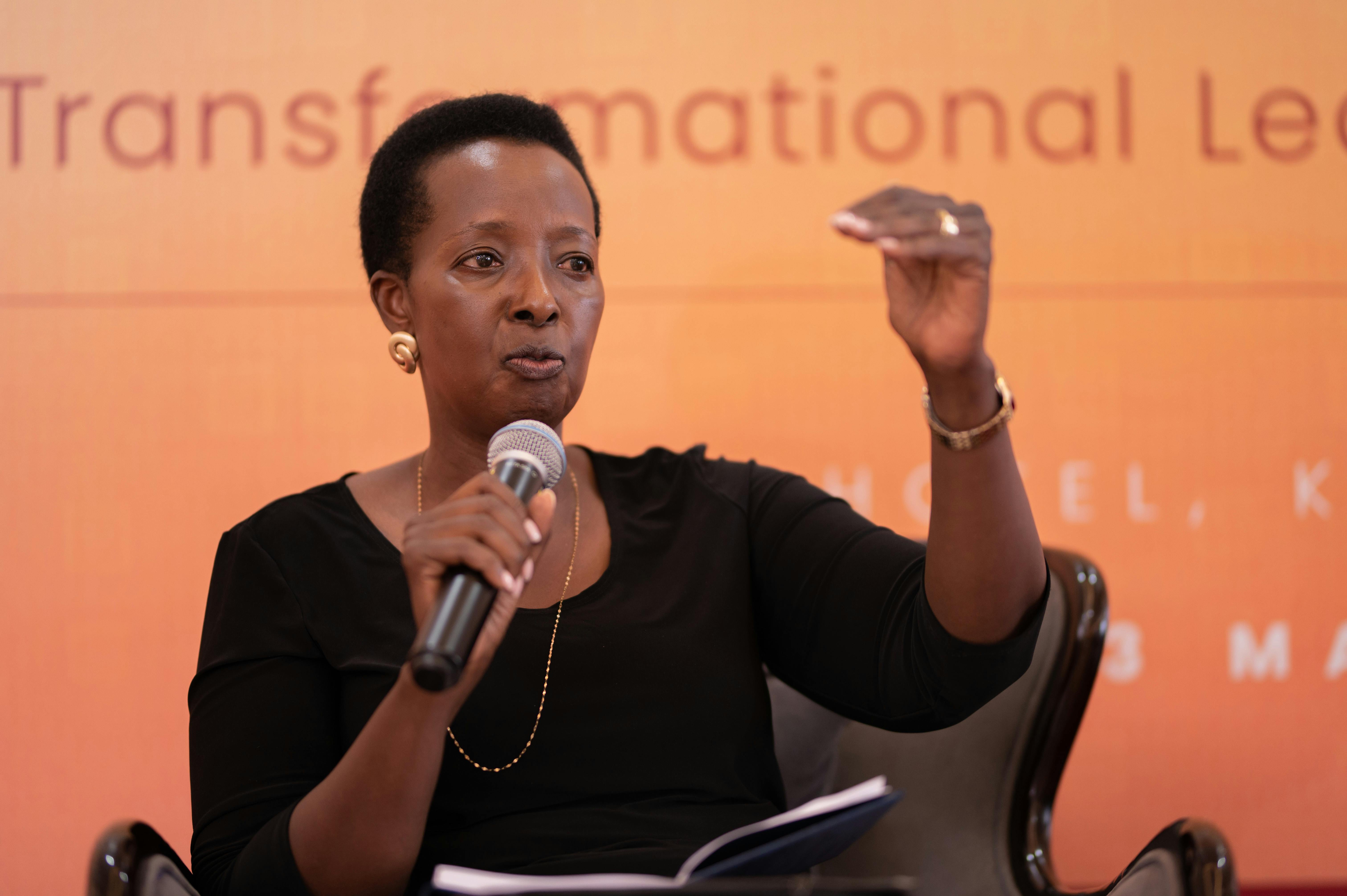A Deep Dive into Professional Ethics - William Babigumira
In his presentation, William Babigumira posited that the conversation on legal and regulatory obstacles within public institutions often uncovers complex layers of challenges that hinder ethical practices. His close examination revealed three key elements: legal frameworks, technicalities, and their intersection with ethical standards.
First, William observed that legal and regulatory frameworks, though essential, often clash with ethical mandates. In Uganda, for instance, this conflict has created a turbulent atmosphere, particularly regarding professional conduct in public institutions. The Anti-Corruption Act of 2009 serves as an illustrative example. While its sweeping measures were intended to eradicate corruption, William noted that its implementation has proven far more challenging than anticipated. Despite its stringent provisions, the act has not led to the systemic change many had hoped for, revealing that enacting laws is only one piece of the puzzle.
Second, William highlighted the "tyranny of technicalities" noting how legal maneuvering can undermine accountability. Corrupt public officials, when caught, often exploit procedural loopholes to evade justice. Even with sufficient evidence, skilled legal representation can delay or nullify rulings through appeals and procedural arguments. This weaponization of legal technicalities creates a frustrating cycle where unethical behavior persists, protected by the very system designed to curtail it.
These challenges point to the broader issue of aligning legal mandates with ethical standards. Without a concerted effort to close loopholes, strengthen enforcement mechanisms, and prioritize ethical integrity, the obstacles within public institutions will remain deeply entrenched. Addressing these issues requires not just robust legal reforms but also a cultural shift toward accountability and professionalism.
By understanding these dynamics, stakeholders can better navigate the intersection of law and ethics, fostering environments where justice prevails over procedural exploitation. In conclusion, William exhorted that the responsibility lies not just with lawmakers but with all citizens to demand systems that prioritize integrity over technicality.
Watch William Babigumira’s presentation
Fostering Accountability and Credibility in Public Service - Saxon Ssekitoleko
Saxon’s ideas during the panel discussions were centered around governance and service delivery underscoring critical issues related to accountability, transparency, and credibility in public institutions. Saxon noted that these factors shape the efficiency and trustworthiness of governments in delivering essential services to citizens.

Saxon found that one pressing concern is the lack of transparency in processes such as obtaining permits or other essential documents. When citizens seek services, questions arise: Is the process clear? Are fees explained, and do they serve a legitimate purpose? Efficient service delivery requires that citizens understand what they are paying for, trust the system, and receive timely, valid outputs. For instance, when someone applies for a permit, they should expect streamlined procedures, reduced waiting times, and clear validation mechanisms for their documents.
However, he observed that challenges such as bureaucratic inefficiencies and weak accountability mechanisms persist. A culture of accountability must be cultivated within public institutions, ensuring that every step of service delivery is traceable and effective. This requires not just mechanisms for oversight but also a commitment to higher ethical standards.
Saxon’s comparison between Uganda and Rwanda offered valuable insights. He noted that public institutions in Rwanda are often perceived as more credible, with higher operational standards than both private institutions in the country and their counterparts in Uganda. This credibility stems from a deliberate focus on governance and institutional integrity. Such a model demonstrates the importance of setting higher benchmarks for public service, which can inspire trust and improve service delivery.
In conclusion, Saxon emphasized that improving governance and service delivery requires transparent processes, robust accountability frameworks, and a culture of integrity within public institutions. By addressing these areas, governments can build credibility and ensure that public services truly meet the needs of their citizens.
Watch Saxon Ssekitoleeko’s presentation.
Discovering Ethical Leadership: A Personal Journey - Sameer Luyombo
Reflection his personal leadership journey, Sameer said that the journey toward understanding leadership and power is often shaped by early experiences. Leadership, especially in its formative stages, can be misinterpreted as an exercise of control and authority over others, often devoid of ethical considerations.

Sameer recalled a pivotal moment in primary school when a teacher left him in charge of the class and instructed him to report misbehaving classmates. This early exposure to leadership felt uncomfortable, as the task conflicted with his sense of fairness and relationships with peers. At the time, leadership seemed synonymous with power and punishment, creating a distressing experience that led him to shy away from similar responsibilities.
However, this narrow perception of leadership gradually evolved, thanks to the influence of Sameer’s mother, who was involved with the Aspen Institute. Through indirect but deliberate means, she introduced him to texts and discussions on ethical leadership. Key readings, such as Roosevelt's Man in the Arena, were strategically placed in Sameer's vicinity, sparking curiosity and reflection. These texts, coupled with his mother's approach, offered valuable insights into the principles of leadership based on ethics, accountability, and influence rather than mere authority.
This experience underscores the transformative power of exposure to thought-provoking ideas and role models in shaping one's understanding of leadership. It highlights the importance of nurturing a broader perspective on power – one that prioritizes responsibility, empathy, and ethical considerations over dominance.
By fostering ethical leadership from a young age, Sameer observed, individuals can move beyond the simplistic notion of power and embrace a more profound and impactful approach to leading others. This journey serves as a reminder that leadership is not just about authority but about inspiring trust and integrity in every action.
Watch Sameer Luyombo’s presentation
Compiled by Nnanda Kizito Sseruwagi.
Nnanda is the Media and Communications Officer at the LéO Africa Institute.




